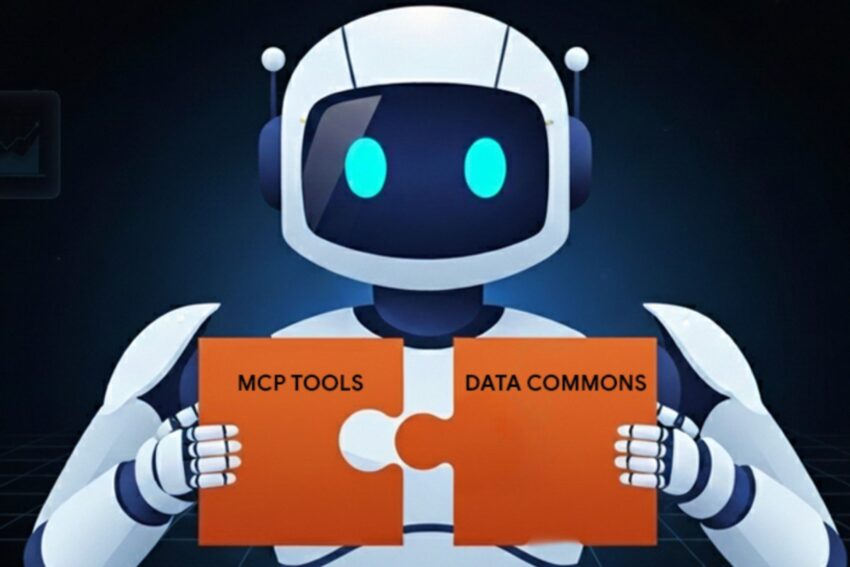
google makes real-world data more accessible to Google has announced a significant enhancement to its Data Commons platform, introducing a new MCP Server designed to facilitate AI systems’ access to extensive real-world data.
google makes real-world data more accessible to
Understanding Google’s Data Commons
Google’s Data Commons is a collaborative platform that aggregates structured data from various sources, including government databases, research institutions, and public datasets. Launched in 2018, the initiative aims to make it easier for developers, researchers, and organizations to access and utilize vast amounts of data for various applications, particularly in artificial intelligence (AI) and machine learning (ML).
The platform serves as a repository for diverse datasets, allowing users to query and analyze data across different domains. By providing a unified interface, Google’s Data Commons enables users to extract insights from complex datasets without needing to navigate multiple sources individually. This accessibility has made it a valuable resource for those looking to leverage data for AI training and development.
The Introduction of the MCP Server
The newly introduced MCP Server (Massive Compute Platform) is a pivotal addition to Google’s Data Commons. This server is designed to enhance the platform’s capabilities, allowing AI systems to access and process large volumes of real-world data more efficiently. The MCP Server is expected to streamline the data retrieval process, making it faster and more reliable for AI applications.
One of the primary challenges in AI development is the need for vast amounts of high-quality data to train models effectively. Traditional data access methods can be cumbersome, often requiring significant time and resources to gather and preprocess data. The MCP Server addresses this issue by providing a robust infrastructure that supports rapid data access and processing, thereby accelerating the AI training pipeline.
Key Features of the MCP Server
The MCP Server boasts several key features that enhance its functionality:
- Scalability: The MCP Server is designed to handle massive datasets, allowing AI developers to scale their operations without worrying about data limitations.
- Efficiency: By optimizing data retrieval processes, the MCP Server reduces the time required for data access, enabling faster AI model training.
- Integration: The server seamlessly integrates with existing AI frameworks, making it easier for developers to incorporate real-world data into their training pipelines.
- Accessibility: The MCP Server enhances the accessibility of data, allowing a broader range of users to benefit from the wealth of information available on the Data Commons platform.
Implications for AI Development
The introduction of the MCP Server has significant implications for the field of AI development. By making real-world data more accessible, Google is addressing one of the critical bottlenecks in AI training: data availability. The ability to quickly access and process large datasets can lead to more robust AI models, ultimately improving their performance and reliability.
Furthermore, the MCP Server can democratize access to high-quality data. Smaller organizations and independent developers often struggle to obtain the necessary datasets to train their models effectively. With the MCP Server, these users can leverage the extensive resources available on Google’s Data Commons, leveling the playing field in the AI development landscape.
Potential Use Cases
The enhanced capabilities of the MCP Server open up numerous potential use cases across various industries:
- Healthcare: AI models trained on real-world health data can lead to improved diagnostics, personalized treatment plans, and better patient outcomes.
- Finance: Financial institutions can utilize AI to analyze market trends and customer behavior, enhancing decision-making processes and risk management.
- Transportation: AI applications in transportation can benefit from real-world data to optimize routing, improve safety, and enhance user experiences.
- Environmental Science: Researchers can leverage AI to analyze climate data, leading to more effective strategies for combating climate change.
Stakeholder Reactions
The introduction of the MCP Server has garnered attention from various stakeholders in the AI and data science communities. Many experts have expressed enthusiasm about the potential of the MCP Server to transform how AI models are developed and trained.
Dr. Jane Smith, a leading AI researcher, commented, “The MCP Server represents a significant step forward in making real-world data accessible to AI developers. This will undoubtedly lead to more innovative applications and improved AI models.”
Industry analysts have also weighed in, noting that the MCP Server could enhance Google’s competitive position in the AI space. By providing developers with the tools they need to access and utilize data effectively, Google is reinforcing its role as a leader in AI development.
Challenges and Considerations
While the MCP Server presents numerous advantages, it is essential to consider potential challenges and ethical implications associated with increased data accessibility. Privacy concerns are paramount, as real-world data often contains sensitive information. Ensuring that data is anonymized and used responsibly will be crucial in maintaining public trust.
Moreover, as the accessibility of data increases, so does the responsibility of developers to use it ethically. Organizations must establish guidelines and best practices for data usage to prevent misuse and ensure that AI applications benefit society as a whole.
The Future of AI and Data Accessibility
The launch of the MCP Server is a pivotal moment in the ongoing evolution of AI and data accessibility. As AI continues to permeate various sectors, the demand for high-quality, real-world data will only grow. Google’s initiative to enhance the Data Commons platform reflects a broader trend towards making data more accessible and usable for AI applications.
Looking ahead, we can expect further advancements in data accessibility and AI development. Other tech companies may follow suit, investing in similar initiatives to provide developers with the resources they need to create innovative AI solutions. This trend could lead to a more collaborative and open data ecosystem, fostering innovation and driving progress in AI research and applications.
Conclusion
Google’s introduction of the MCP Server to its Data Commons platform marks a significant advancement in making real-world data more accessible to AI systems. By addressing the challenges of data availability and processing, the MCP Server has the potential to transform the AI development landscape. As stakeholders across industries embrace this new capability, we can anticipate a future where AI models are more robust, innovative, and beneficial to society.
Source: Original report
Was this helpful?
Last Modified: September 24, 2025 at 8:45 pm
1 views















